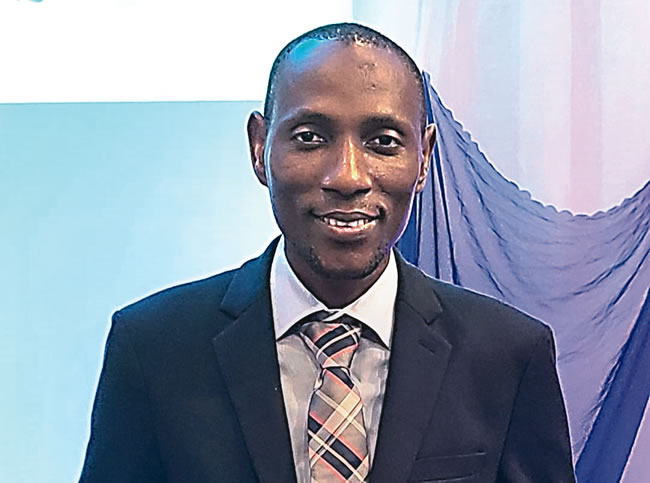Dr Olukayode Shiroye is the country director of the Nigerian branches of AHZ Associates with head office in the United Kingdom. In this interview with IFEDAYO OGUNYEMI, he speaks on why young Nigerians are sought after by overseas schools and other issues. Excerpts;
What do you think is responsible for the low-quality applications put forward by students when gunning for local and international opportunities?
Based on my experience in the international higher education sector and having been in various meetings where the fate of student applications is being discussed, it is obtainable that the low-quality applications from students to universities, specifically UK universities, are attributable to limited access to information, complexity, and dynamics of the requirements. In some other cases, not having access to the right form of support tends to contribute largely to this problem. Prospective international students applying to the UK from Nigeria seem to fall largely for misinformation being spread via unofficial platforms on social media without considering the fact that over 90% of applications to UK universities are treated on a case-by-case basis.
What would you recommend for students hoping to ace international study applications?
In order to have a successful stride while applying to secure a seat in any international university, especially in the UK, it is key for students to learn to pay attention to details and also consult official sources of information before making conclusions. Aside from being in contact with university partners such as AHZ Associates, it is key to be willing to put in the work as well. The toll of the process varies per person and it all depends on how well the applicant is open to taking advice from official sources and not random Telegram channels as earlier stated. Ultimately, students should have a firm resolve on the course they want their career to ply, their budget, and how much of their savings they can afford to spend on international study applications. In the event that the person is undecided about the career path to follow, education counsellors are there to help with clarity on that part. The list goes on and on as recommendations tend to be “bespoke” as well.
You’ve had quite a swell time working with international students from Nigeria. How would you describe their grit and preparedness for the various opportunities they aim for?
I believe my words alone do not do justice to the level of preparedness Nigerian students display when they reach out to us for support on their applications. Statistics show that between 2019 and 2022, the number of student visas issued by the UKVI rose by over 760 per cent. This accounts for over 59,000 Nigerians who travelled to the UK on a student visa in 2022 alone compared to 6,798 in 2019. Feedback from our partner universities also confirms that the most impressive set of encounters with international students come from Nigerians. Hence, Nigerian applicants are highly valued as they sustain that energy even in their academics when they arrive in the UK.
There’s this perception that some travel and school agents usually defraud their clients, including students of their hard-earned money. How does this perception affect your services and the sector itself?
I think for starters, we send every form of doubt out of the window by letting students know that my organisation does not charge any money for its services. It is entirely free. It is sad that Nigerians still fall for fraudulent organisations. However unfortunate this might be, it is not far from the truth and this problem is part of what AHZ Associates has come to fix. A lot of applicants have fallen into the hands of fraudsters in all shapes and forms. Some of these people have even suffered intense consequences that have affected their records with the UKVI. This truly makes the job of gaining trust with our prospects a little more tasking. Nonetheless, we have been working relentlessly to give people new hopes even when they thought there were no other ways forward. International higher education is not exactly marred by these issues as most of those fraudulent agencies are not partners with the universities and it is shocking to know people fall for them. Universities have begun adopting measures such as publishing the names of their recognised partners and agents who can support Nigerian students with their applications. You can guess rightly that we happen to be part of the top partners to over 140 UK universities.
There appears to be an increase in the use of self-service by students seeking international opportunities. In your own opinion, what do you think they are missing out on when they do not engage agents in the application process?
As it has been rightly said, the number of students showing interest is increasing exponentially. However, many tend to make a lot of mistakes, thereby jeopardising the success of the process eventually. While paranoia exists in the heart of many against travel agents and scammers, it is okay to put it out there that AHZ Associates is not a travel agent but a partner to UK universities.
This gives us the opportunity to liaise with the university on behalf of students. Oftentimes, universities reach out to us before making certain decisions that can impact the success of student applications. Other times, we make the universities realise the dynamics of Nigeria in relation to international student applications, standing in the gap and making suggestions to our partners to make the life of our students better. The mind-blowing part is the amazing discount opportunities reserved for our students when they apply through AHZ Associates to any of these universities. The benefits are endless and these are what students miss out on when they do not consider taking the support of recognised university agents such as AHZ Associates.
In about five years since this organisation started operating in Nigeria, what have been its landmark achievements and overall focus?
Leading with one of our most recent recognitions by our partners, we were awarded as the top recruiter for higher education providers such as QAHE and Oxford International Education group. Following our global 10th-year anniversary last year, we have opened seven physical branches and five virtual branches in Nigeria. The physical branches are in Lagos (Ikeja & Lekki), Ibadan, Abuja, Enugu, Port Harcourt, and Kano.
We also take pride in mentioning that we have had near 100% success rate with every application we have supported students on. We have also hosted over 15 series of UK Education Fairs where we have brought delegates from various UK universities to Nigeria to meet with the students.
These events happen in numerous locations per season, leaving us with over 50 times when this has been done here in Nigeria.
Our focus as a representative to UK universities is to help Nigerian students reach their goals by assisting students to secure their seats in one of their desired universities. This is the overall focus driving our success and work rate.
There’s a bill under discussion at the National Assembly that hopes to curb the Japa syndrome in the medical profession. How do you think this bill will affect students seeking international opportunities including study programmes?
I believe matters like these are best left to the experts in the field of medicine to discuss as it addresses a migration route very different from international study applications.
You hold a periodic expo/fair for UK universities in Nigeria. What is the rationale behind this event and what has been its impact so far?
We host expos and UK education fairs three times (January, May, and September) in a year for the physical ones. They also hold each time in about six Nigerian cities. The virtual ones are held at least four times a month where students join us online as well as UK university representatives to speak with interested applicants.
It is great news to know that we are having the same event throughout the month of May 2023; in Lagos at Radisson Hotel Ikeja on May 13th, Ibadan at Golden Tulip Hotel on May 16th, Enugu at Golden Royale Hotel on May 9th, Port Harcourt at Hotel Presidential on May 11th, Abuja at Nicon Luxury Hotel on May 20th and Kano at Grand Central Hotel on May 18th.
The events are completely free as our service is 100% free and many students have testified to how progressive it had been to put a face to the university representatives they have been hearing about. This helps to boost the confidence of our students as well as they get free education counseling, seminars by the university representatives, tips and guides on how to live and study in the UK, spot assessment, and even instant admission offers. The impact is great when viewed from the qualitative lens as well as the quantitative point of view as well.
The UK Education Fair comes with loads of benefits and progressive leaps for our students. The information is on our website for further information
About how many Nigerian students has your organisation provided this sort of linkage since inception?
Rounding it up, we have supported around 5,000 students to enroll with our partner universities so far and we aim to exceed that record before the end of the incoming admission intakes. It is safe to say we are making remarkable progress in terms of student recruitment.
A lot has been said about the Japa syndrome and its attendant effect on Nigerian society. As someone who has enjoyed local and overseas education, how can the country strike a balance for its overall development in light of the huge human capital flight?
The concerns seem valid when the issue of human capital and resources is brought to the spotlight. One mistake the public tends to make is that we tend to focus more on the people traveling out to acquire more knowledge and skill while forgetting that people return in their hundreds to put the knowledge they have gained into practice. The aim of the process is to help Nigerians get a higher quality education that will help them influence positive change in their home countries. A lot of Nigerians after their degree, return to Nigeria to have a positive impact. We cannot name ten notable Nigerians without seeing seven of them with a UK degree. Hypothetically, it is safe to say that international studies are not posing the challenge of human capital flight to Nigerian society but even giving a return on Nigerians’ investment with higher quality professionals who come back to impact changes. This may be arguable for other emigration routes but not for international study applications.
READ ALSO FROM NIGERIAN TRIBUNE
WATCH TOP VIDEOS FROM NIGERIAN TRIBUNE TV
- Relationship Hangout: Public vs Private Proposals – Which Truly Wins in Love?
- “No” Is a Complete Sentence: Why You Should Stop Feeling Guilty
- Relationship Hangout: Friendship Talk 2025 – How to Be a Good Friend & Big Questions on Friendship
- Police Overpower Armed Robbers in Ibadan After Fierce Struggle






